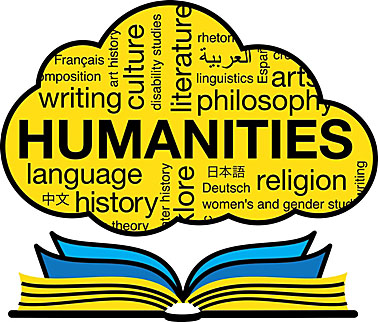If you’ve ever wondered about the history of disability studies, this semester’s second Humanities Happy Hour is where you’ll want to be this Friday.
Dr. Kim Nielsen, UT professor of disability studies, and Dr. Ally Day, UT assistant professor of disability studies, will present Friday, Feb. 27, from 6 to 7 p.m. in the Libbey Hall dining room.
 The free, public event will begin at 5 p.m. with a beer and wine cash bar and free refreshments that will continue through the talks and end at 8 p.m.
The free, public event will begin at 5 p.m. with a beer and wine cash bar and free refreshments that will continue through the talks and end at 8 p.m.
Nielsen’s talk, “The Doctoress and the Bullwhip: Insanity and Diagnosis in 19th-Century America,” will focus on Dr. Anna Ott, a successful physician in the mid-1800s who was institutionalized and spent the last 20 years of her life in an insane asylum.
“I want to talk about what her diagnosis was like, her life, and what it was like to be treated by her former male colleagues,” she said. “She was clearly very ornery and unusual. She was institutionalized the same year that one of the leading physicians in the United States charged that women going to college would render them insane. I want to use her to talk about how diagnoses change over time.”
“She was a person who chased her husband’s mistress down the street with a bullwhip,” she added with a laugh.
Nielsen said she will use Ott’s story to discuss how diagnoses during different time periods reflect the history.
Day will focus on a new project — human immunodeficiency virus (HIV) in poetry — with her talk, “Blood, Breast-Milk and Boundary-Making: Toward a Disability Bioethics in the Poetry of Tory Dent.”
Dent wrote three volumes of poetry focusing on her struggles with HIV. Day said she will explore two poems that Dent wrote: “HIV Mon Amour” and “Black Milk.” The second title is actually dedicated to the first one, a peculiar concept Day said she wants to explore.
“One of the things that’s really cool about her poetry is that she really centers her female-embodied experience,” Day said. “She uses images of pregnancy and miscarriage to think about the HIV virus. At one point she talks about the virus being almost like small children in her womb. And another time she talks about the virus killing the children in her womb. It’s like there’s this conflict.”
At the time Dent was writing her poetry, there wasn’t a lot of knowledge about HIV in women, Day said.
“She’s one of the first women in the United States to be so up front and out about that status and what that means to her as a female,” she said.
Day said she will be using Dent’s work to discuss how HIV influences disability poetry. Sometimes disability poetry is difficult to understand because the author refuses to follow strict genre guidelines, she said.
Both women said they want their talks to impart the importance of disability studies.
“Disability history matters,” Nielsen said. “It really is very widely applicable and of interest.”
“I think Kim and I both want folks to understand disability studies really broadly,” Day agreed. “It uses tools from a lot of different disciplines, but the humanities remain centrally important. Disability studies offers a lot of tools for someone working with literature, especially as sort of an analytic tool to look at how we represent ourselves as a world.”
Humanities Happy Hour is an initiative through the Humanities Institute in the College of Languages, Literature and Social Sciences. The institute serves as an advocate and support for the study of human cultures at UT.
“Disability studies is an exciting interdisciplinary area of study that incorporates the humanities, social sciences and sciences,” said Dr. Christina Fitzgerald, director of the institute and professor of English. “On the humanities side, disability studies explores key issues of the history, representation, identity and selfhood of people with physical and mental disabilities. The humanities in general seek to understand the entire range of human culture and experience, and disability is part of what it means to be human.”
For more information, contact the Humanities Institute at 419.530.4407 or HumanitiesInstitute@utoledo.edu.